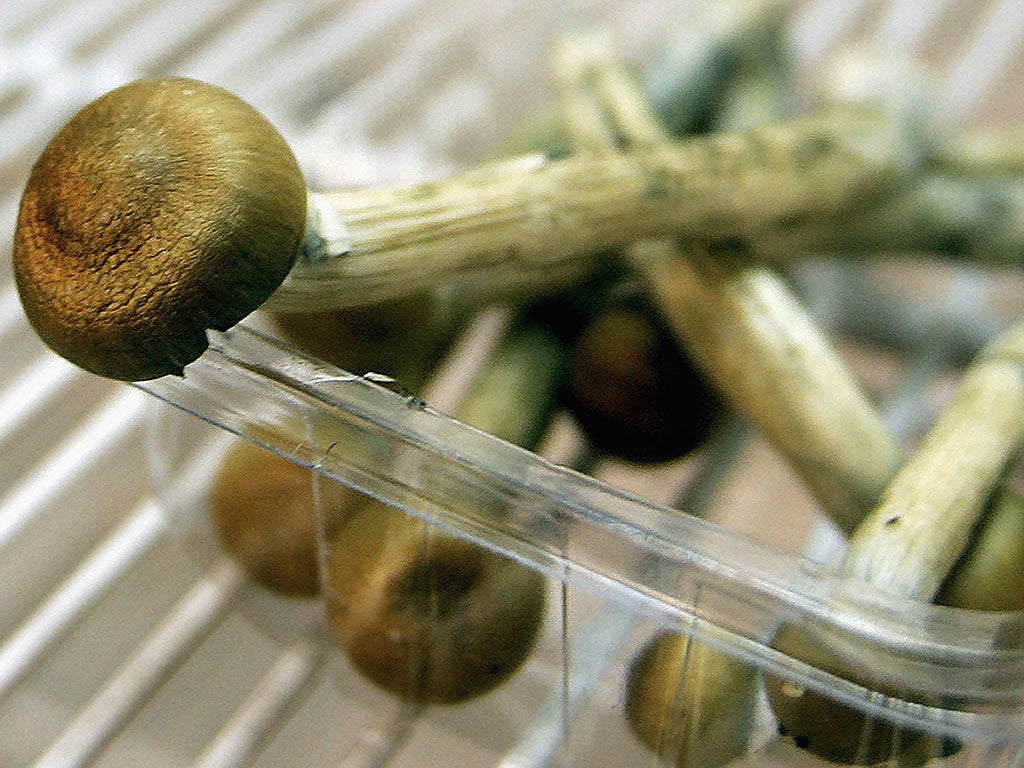Could magic mushrooms help the fight against depression?

Your support helps us to tell the story
From reproductive rights to climate change to Big Tech, The Independent is on the ground when the story is developing. Whether it's investigating the financials of Elon Musk's pro-Trump PAC or producing our latest documentary, 'The A Word', which shines a light on the American women fighting for reproductive rights, we know how important it is to parse out the facts from the messaging.
At such a critical moment in US history, we need reporters on the ground. Your donation allows us to keep sending journalists to speak to both sides of the story.
The Independent is trusted by Americans across the entire political spectrum. And unlike many other quality news outlets, we choose not to lock Americans out of our reporting and analysis with paywalls. We believe quality journalism should be available to everyone, paid for by those who can afford it.
Your support makes all the difference.Magic mushrooms could one day be prescribed for depression after Professor David Nutt, the controversial sacked government drugs advisor, claimed research on healthy volunteers proved what a mistake it was to abandon therapeutic psychedelic drugs more than 50 years ago.
The first clinical trial into magic mushroom therapy could start by the end of the year after two small studies suggested the active chemical, psilocybin, had a profound affect on key regions of the brain.
Professor Nutt's team, at Imperial College London, hope to test the hallucinogen on depressed patients who have not benefited from antidepressants or behavioural therapy.
Psilocybin would be infused into their bloodstreams before a psychotherapy session, tailored to elicit positive memories. If funding is approved by the Medical Research Council it would represent a major step towards mainstream rehabilitation for such drugs since LSD was banned in 1966.
The first study, published in the Proceedings of the National Academy of Sciences, involved scanning the brains of 30 people given the drug intravenously to measure changes in blood flow and activity. Unexpectedly, the MRI scans showed the drug caused activity to decrease in hub areas with dense connections to other areas. It disconnected two key hubs: the medial prefrontal cortex, which is hyperactive in people with depression, and the posterior cingulate cortex, thought to play a role in self-awareness.
The second study, to be published in the British Journal of Psychiatry on Thursday, found magic mushrooms helped 10 patients vividly recall positive memories and feel generally happier in the following days.
Professor Nutt said: "This drug has such a fundamental affect on the brain we should be trying to understand why."
Professor Nick Craddock, from Cardiff University, said much more was needed to convince psychiatrists that psilocybin was safe, effective and acceptable.
Psychedelic drugs: a history
The man regarded as the father of psychedelic drugs, Albert Hofmann, a Swiss chemist, first discovered LSD in 1938 and went on to isolate the active chemical in magic mushrooms, psilocybin, and several other naturally occurring hallucinogens.
* In the 1950s and 1960s, researchers carried out studies on around 40,000 patients and published 1,000 papers on psychedelic drug-assisted psychotherapy.
Such work was brought to an abrupt halt when the drugs were banned, making research virtually impossible.
* In 2010, American researchers published the first-ever clinical trial into the effects of MDMA, the active ingredient of ecstasy pills, found it to be safe and effective in treating patients with post traumatic stress disorder in conjunction with psychotherapy.
Professor Nutt is hoping to replicate the study on UK veterans suffering from PTSD who have not been helped by conventional therapies.
* The therapeutic benefits of cannabis for patients with multiple sclerosis continue to be studied, 11 years after the active chemical compound, cannabinoid tetrahydrocannabinol (THC), was first shown to reduce muscle tremor and spasticity by scientists at University College London.
Join our commenting forum
Join thought-provoking conversations, follow other Independent readers and see their replies
Comments